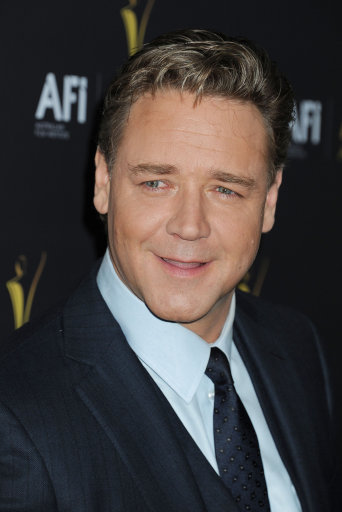Russell Crowe woos Pope with invitation to watch his Noah film

Russell Crowe has reached out to Pope Francis with an invitation to show him the new film he's starring in, Noah.
The Oscar-winning actor brushed aside the negative headlines that have being doing the rounds in the last few months to assure the pontiff that the film adaptation of the Old Testament story would "fascinate" him.
He took to Twitter to suggest a screening of the film, which opens in theatres on March 28.
"Holy Father @Pontifex, it would be my deepest pleasure to bring the @DarrenAronofsky film to you to screen," Crowe said in his post.
He added: "Sorry that I have caused havoc in your social media world. Seriously though, #Noah the movie will fascinate you."
The Pope has yet to reply to Crowe's invitation but if he did accept the invitation it would be a huge boost to the film's credentials among Christians, who are divided over the film.
Directed by Darren Aronofsky, Crowe stars in the lead role as Noah. The supporting cast includes Emma Watson, Nick Nolte and Jennifer Connelly.
The studio behind the film, Paramount, reportedly asked Aronofsky to alter the plot after it performed poorly in early test screenings with Christian and Jewish audiences.
A poll this month by the Faith Driven Consumer group found that 98 per cent of people of faith said they would not be satisfied with a biblically themed movie "which replaces the Bible's core message with one created by Hollywood".
Paramount hit back at the survey by releasing internal tracking data by Nielsen's National Research Group and the Barna Group suggesting that a majority of people are anticipating the film's release. A Barna survey carried out over February 13 to 15 found that a majority of pastors "would recommend that people see Noah".
John Snowden, Paramount's biblical adviser for the film, wrote in a column for the Christian Post that the church could find "very valuable reflections on Noah, God and theology in the film".
He suggested people should see the film before making up their minds about it.
"Unfortunately, those who have felt compelled to criticise the film in these stories haven't actually seen it – so it's difficult to understand what exactly they're criticising," he said.











